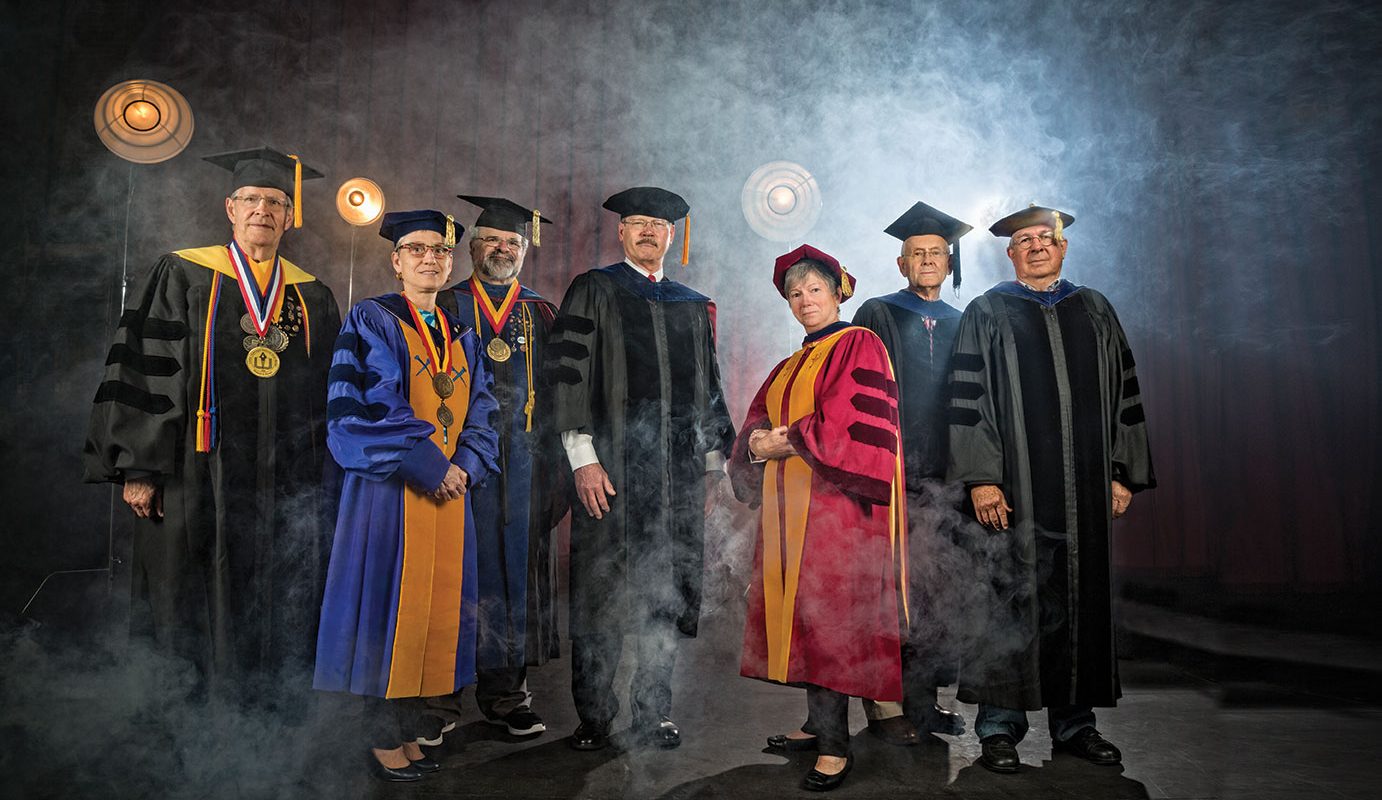
The Magnificent Seven
TCU’s seven active Piper Professors share the challenges and triumphs of educating Horned Frogs over the decades.
Each of the past three years, the Minnie Stevens Piper Foundation of Texas has selected a TCU professor among its list of the 10 best teachers in the Lone Star State. Ralph Carter, Molly Weinburgh and Cecilia Silva join a group of four other active Horned Frog faculty who have received the honor. All seven have been recipients of the TCU Chancellor’s Award for Distinguished Achievement as a Creative Teacher and Scholar. This spring, they shared their insights with the magazine while reflecting on their careers in the classroom.
What makes a good teacher?
Rich Enos, English: I believe that a good teacher tries to bring out the best in each student and conveys the belief that students have the talent to realize their dreams through hard work and dedication.
Bob Doran, mathematics: There are many things. Tops among them for me are the following: A good teacher recognizes of the infinite worth of each student and treats each one with great respect. He or she has an excellent knowledge of the subject matter. A good teacher honors his or her students by always being well prepared (and organized!) both in and out of the classroom. He or she makes the classroom (and learning in general) exciting, fun and challenging. He or she returns graded assignments/exams quickly so students know exactly how they are doing. A good teacher encourages questions and has patience, even when some of the questions may appear (and even be) foolish. He or she never makes a student feel inferior or dumb, and ultimately wants each of his or her students to be successful at TCU and later in life.
Cecilia Silva, education: A good teacher knows how to engage students in relevant content.
Don Jackson, political science: TCU has allowed me to spend much of my time preparing to teach undergraduate students. Very few universities allow that much freedom. I have been enabled to listen to my students and to try to meet their needs for the future.
Bob Frye, English: Thorough research and preparation, a willingness to labor hard with and for your students, and genuine caring for each one of them are essentials that complement serious commitment to good teaching. I teach because, for me, teaching is a gift of grace, a calling, a kind of ministry. Persistently expecting the best — of my students, of myself — I teach primarily because I believe that language matters, that it is central to our very being, and that occasionally I can make it possible for a student to utter those words most precious to a teacher: “Oh, I see, I see; I understand.” When that happens, however infrequently, I realize anew that I have embarked on a very holy time.
Ralph Carter, political science: Beyond competency in your teaching and research areas, it’s about how you relate to students. Respecting them as individuals and showing them you care about them is crucial. You want them to know that you want the best for them going forward in life, and that’s why you hold their work to high standards and try to help them develop professional work habits and behaviors. Finally, it really helps if they can see that you take learning seriously but don’t take yourself seriously. Being able to laugh at yourself helps create a positive classroom environment.
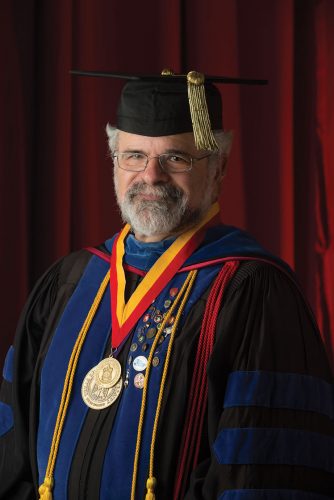
Richard L. Enos
Richard L. Enos
Lillian Radford Chair of Rhetoric and Composition
English
Years at TCU: 1995-present
Named Piper Professor: 2009
Research areas: Understanding the relationship between thought and expression in antiquity
A career highlight: Past president and fellow of the Rhetoric Society of America, which presented him the George E. Yoos Distinguished Service Award (2006)
What words do students use to describe you?
Molly Weinburgh, education: Available and dedicated.
Enos: Students say that I am enthusiastic about my teaching and passionate about my research.
Doran: I don’t know directly how they describe me. However, the answers below are taken from my on-line student ratings at ratemyprofessors.com. “Inspirational.” “Doran is one of the greatest teachers at TCU.”
Silva: One student wrote about me, “she surrounds herself with the community, acting as a face for TCU’s mission statement. … She truly is a global citizen — and models that citizenship for all of her students.”
Frye: “Demanding but fair.” Evidence: Upon hearing me say that I used to be a hard-nosed teacher, former TCU Honors Cabinet Chair, Darrell Hofheinz, said quite seriously, “You still are.”
“A good teacher recognizes the infinite worth of each student and treats each one with great respect.”
Bob Doran
How has TCU valued your teaching abilities?
Carter: Obviously very well! I came to TCU as a visiting assistant professor. I have been told it was my teaching performance that got my visiting appointment converted into a tenure-track appointment. I was fortunate enough to receive a teaching recognition the very first year here and have gotten them frequently over time since then. Those recognitions provide positive reinforcement to keep trying to get better.
Enos: You don’t have to be at TCU long to realize that students are central to our mission. What distinguishes TCU from other institutions is that we reward excellent teaching both informally and formally in tangible ways too numerous to list.
Frye: One particular way is that, using basketball parlance, I have often served as the Honors Program’s “sixth man” to come off the bench in time of need—perhaps an apt metaphor since I served in 1974-75 as the first head coach of the TCU women’s basketball program. In 1987 my colleague Tom Copeland died unexpectedly in August just before the term began and I succeeded him as the literature specialist in the Honors Humanities Sequence. In the fall of 1996 a week before the term began, I was asked to co-teach a new honors seminar on environment issues with Dean Mike McCracken when my colleague Neil Daniel became mortally ill. Then, in 2006, Honors Program Director Peggy Watson asked me on Saturday before the Honors Colloquium “Nature of Values” began on Monday to succeed Dr. Ken Lawrence who had just died suddenly. My experiences teaching in the Honors Program/College from 1967-2010 were invaluable in creating TCU’s confidence in me to meet these needs.
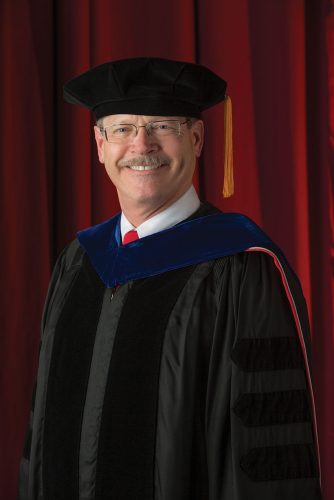
Ralph Carter
Ralph Carter
Professor
political science
Years at TCU: 1982-present
Named Piper Professor: 2014
Research areas: U.S. foreign, defense and trade policy-making, with an emphasis on the roles of congressional members
A career highlight: The Leuschel family created the TCU Ralph G. Carter Excellence in Political Science Scholarship; The Best 300 Professors in 2012, Princeton Review; editor of Foreign Policy Analysis, 2004-09
In what way is TCU’s teacher/scholar model important to you?
Carter: It’s one of the most important reasons I came to TCU. My first full-time position was in a “publish-or-perish” environment. No one cared about quality teaching. The only thing that mattered for professional advancement was how many articles you published and in what journals. While I wanted to be a productive scholar and we need to be scholars to keep in touch with our fields and bring that excitement into the classroom, I could not get over the fact that, without those undergraduate students in our classes, we would be unemployed! We owe students the best education we could provide.
Enos: TCU honors both teaching AND research together and believes that these two dimensions are best realized when they are in harmony.
Jackson: Since I was in my early career a successful practicing attorney, but one who felt that something was lacking in my life, the ideal of the teacher/scholar was the fulfillment of my true vocation — as a teacher, but a teacher who continued to stay current with the best research in my field.
Weinburgh: It allows me to give equal time to the two things that I love — teaching and research.
Doran: It provides a beautiful balance between teaching and research. Both are very important to me.
Frye: The slash implies the complementary nature of teaching and research which inform and shape each other. I teach because I love to learn, and because my ignorance is great, my opportunities for learning are enhanced by this admirable model.
“My highest priority has always been teaching. TCU made that possible. I am grateful.”
Don Jackson
What do you know about teaching now that you didn’t know when you started?
Weinburgh: How much I would learn from the students and how much fun it is.
Silva: I now know that teaching is not about the teacher. It is about the learning. Learning is not about teacher performance but about student engagement.
Enos: I learned that if you show students that you care, that you honor them by giving your best effort, and that you have their best interests always in mind, that they will in turn respond with their best effort. Teachers really can make a difference.
Frye: I honestly did not know how time-and-energy-consuming teaching could be. I wrote detailed commentaries—in green ink—on students’ papers focusing on their strengths and weaknesses. I also allowed revisions of papers, a time-consuming but, I believe, helpful way to enable conscientious students to come to utter those lovely words treasured by a dedicated teacher, “Oh, I see; I see. I understand.”
Carter: It’s not about what I know or what I do; it’s about what they’re learning. I have given up some classroom control in order to get students more invested in active learning situations.
Doran: My focus when I arrived at TCU in the fall of 1969 was entirely on research and graduate students (my first two Ph.D. students finished in 1972). In the 1970s I began looking at how one could become a better teacher. I read everything I could get my hands on. Perhaps the greatest thing I learned was that students deserve to have classes taught by someone who really cares about them and is willing to put in the hard work it takes to be an excellent teacher. So, I would say that everything I now know about teaching has been learned since I arrived at TCU.
Jackson: I certainly did not understand that most of the academic world subscribed to the idea of “publish or perish.” While I have written several useful books and quite a few journal articles, my highest priority has always been teaching. TCU made that possible. I am grateful.
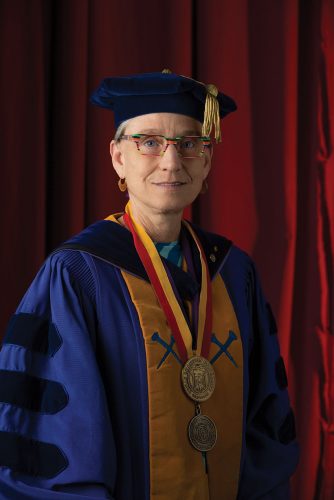
Molly Weinburgh
Molly Weinburgh
William L. & Betty F. Adams Chair of Education
Director of Andrews Institute of Mathematics & Science Education
Years at TCU: 2002-present
Named Piper Professor: 2015
Research areas: Equity issues in science education, especially language; teacher growth
A career highlight: Developing a doctoral program in science education
What’s the best advice someone gave you?
Carter: Be yourself. Work hard, but don’t bury yourself in your work. Find that balance that allows you enjoy time away from work.
Silva: Anytime I faced tough decisions and sought advice from my mother she would always ask: What is the worse that could happen?
Jackson: Be true to yourself — and strive your best to overcome all the obstacles that may confront you.
Enos: Great teachers and great scholars do not brag or self-promote; rather, they are measured and judged each year by their performance in the classroom and the research they produce.
Doran: The underlying theme in all of my mathematics courses, be they graduate or undergraduate, is to do everything in my power to keep things as simple as possible (even when things really are not simple!). Someone whom I don’t recall once said to me, “KEEP IT SIMPLE.” I adopted this as my motto and had a large decorated sign on the wall of my office that had those words. I also placed this on the roll sheet for students to see each day. It helped some students get through my classes!
Frye: Eric Stockton, Harvard Ph.D. and Anglo-Saxon specialist at the University of Tennessee, was confined to a wheelchair. One morning he rolled into our graduate class slowly, the pain of his multiple sclerosis keenly evident, and remarked quietly that he had had company until two in the morning at his house “so I had to get my lesson after the company left.” His serious commitment to necessary preparation for class inspired me. Stockton later advised a group of us teaching assistants at Tennessee that “sarcasm has no place in teaching.” Stockton helped me to learn more than how to read Beowulf in Anglo-Saxon; he taught me by courageous example the value of serious dedication to study and respect for the humanity of every student.
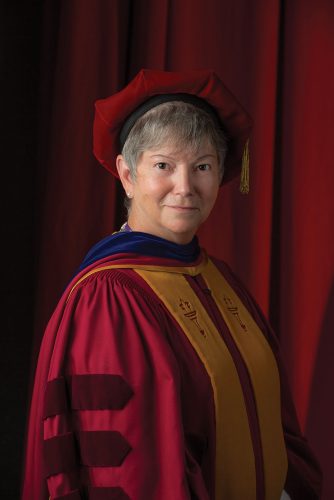
Cecilia Silva
Cecilia Silva
Professor
bilingual education
Years at TCU: 1995-2016
Named Piper Professor: 2016
Research areas: Literacy and bilingual literacy, academic language acquisition for emerging bilingual learners
A career highlight: Society of Professors in Education, Teacher Preparation in Texas Initiative and American Association of Colleges for Teacher Education recognized the English Language and Literacy Middle and Secondary Education Program for its focus on culturally responsive teaching practices.
Why have you stayed at TCU as long as you have?
Jackson: The freedom to be a teacher/scholar (in that order) is very rare. I am grateful.
Carter: Who has it better than we do here? We are at a very good university which has very good students and a stable financial foundation. The administration seeks to create a supportive environment for both faculty and staff. Fort Worth is a very nice city, and the broader DFW area is a good place to live. Speaking personally, my wife Nita and I are both from the North Texas area and so we are close to family!
Doran: TCU has been an excellent place for me to teach and work over the 47 years I have been here. My family has also enjoyed living in Fort Worth. We decided this is exactly where we wanted to be even though I had several opportunities to teach elsewhere.
Enos: I have had the privilege of being a professor at The University of Michigan and Carnegie Mellon University, but TCU is the all-around best university that I have taught at in my 43 years as a professor.
Frye: TCU has provided a stimulating learning environment for me, usually the oldest student in the class, because of its student/faculty ratio (especially in the Honors Program/College), the centrality of teaching as our mission aided and informed by serious research and dedicated university service, and the absolute freedom to daily face the challenge in Emily Dickinson’s words “We never know how high we are / Till we are called to rise.” I feel privileged to be at TCU.
Weinburgh: The people — students, faculty, and staff.
Silva: I have derived great pleasure from being part of the TCU family and the opportunities it has provided me to grow as a teacher and a scholar. Teaching has been a central part of my life, and I know I have made a difference in students just as they have made a difference in mine. My relationship with colleagues has been key in my own growth as an academic.
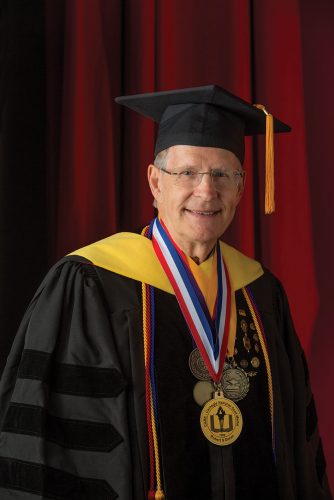
Bob Doran
Robert S. Doran
The John William and Helen Stubbs Potter Professor of Mathematics
Years at TCU: 1969-2016
Named Piper Professor: 1989
Research areas: Operator algebras in Hilbert space and representation theory
A career highlight: National CASE-Carnegie Gold Medalist and Professor of the Year (1989); Chair of mathematics for 21 years (1990-2011)
What does being a Piper Professor mean to you?
Silva: It is a privilege to receive this award. I am deeply humbled by this recognition. Being nominated by colleagues and students who cherish and value teaching makes this nomination particularly meaningful.
Doran: It means a great deal to me! Indeed, being selected a Piper Professor was a tremendous honor and is deeply appreciated. It also reflects that many of my students appreciate and recognize the efforts that I have made to help them learn and be successful in life.
Jackson: I don’t feel special in any way. I hope being chosen as a Piper Professor represents my lifelong desire to present alternative understandings of our history from which students may choose their own preferences.
Enos: It is a humbling experience to be included with such great colleagues and a constant reminder of the standards and expectations entailed in that honor.
Carter: A lot! It’s recognition by others of the work you’ve put in over a long period of time to be the best you can be in working with students.
Weinburgh: Validation that students find my classes to be beneficial and enjoyable.
Frye: It means that I am incredibly blessed and uncommonly fortunate to be among such an extraordinary company of teachers/professors who value exceptional teaching. They help me to learn anew that instead of the wisdom of the world being utterly foolishness to God as I had been drilled in my youth, “understanding the world,” as Jacob Bronowski, renowned mathematician, historian of science, and author of the famous Ascent of Man, once observed, “. . . is a [worthwhile] major intellectual activity.” I am deeply moved and simply astonished to be among the Piper Professor recipients.
“I am uncommonly fortunate to be among such an extraordinary company of teachers/professors who value exceptional teaching.”
Bob Frye
What makes humanities a distinguishing part of a TCU education?
Frye: The theme for the upcoming celebration of Dr. Ron E. Moore’s life is “What It Means to Be Human.” That is what, I believe, is the theme of the arts and sciences in general and of the humanities in particular. And certainly the fact that TCU has the Delta of Texas Chapter of Phi Beta Kappa, stressing as it does, the seminal importance of the humanities, helps to make TCU clearly a good place to study the humanities. Hence for me my nine years co-teaching with distinguished colleagues in the TCU Honors Program Humanities Sequence was an enormously challenging and extraordinary intellectual experience.
Doran: I believe an educated person must be well-rounded and see the world in context. Therefore, I strongly support having science majors, math majors, and others being required to study the humanities as part of their degree.
Enos: The humanities, by its very nature, focuses on the human condition and deals with the ethics, issues and values that we all must face in life. Self-reflection, the ability to unite wisdom with eloquence, and to provide ethical leadership are central contributions that can be developed and must be taken seriously in higher education regardless of one’s discipline or major.
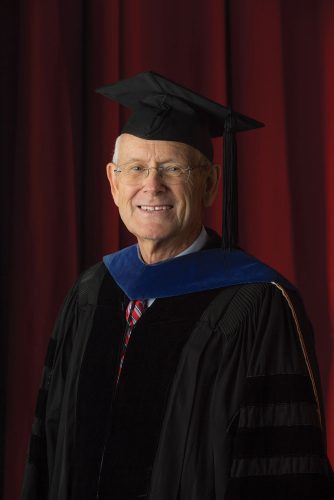
Bob J. Frye
Bob J. Frye
Cecil and Ida Green Distinguished Emeritus Tutor
Distinguished Lecturer in English
Years at TCU: 1966-2010
Named Piper Professor: 1994
Research areas: Eighteenth-century British literature, rhetoric and composition and southwestern American literature
A career highlight: Invited by Jim Kelly, director of the Honors Program, to succeed the late Tom Copeland as the literature professor in the honors humanities sequence.
How do you use technology in your class? What technology do you allow students to use?
Carter: I use PowerPoint presentations in class. I also rely on eCollege for its gradebook, document sharing, and email tools so students constantly know how they are doing in class and what is expected of them. I allow students to use their laptop computers in class, but warn them that studies have shown that they learn and retain material better if they rely on pen and paper note taking instead. While I also admonish them not to use the laptops in class for other purposes — such as checking their Facebook page, reading email, setting their fantasy football rosters each week, etc. — laptops can be helpful when someone asks a question for which I don’t know the answer. I’ll say, ‘Someone look that up!’
Doran: My students are required to use graphing TI calculators as part of most of my mathematics classes. However, I emphasize careful thinking over the use of calculators and technology whenever possible. Technology is simply a convenient tool and is not over emphasized in my classes.
Enos: Plato argued that direct, oral communication is best, but I think he would happily have used technology to extend our own capacities. In that spirit, I use technology to facilitate and to complement, but not to substitute, the living experience of interacting directly with students in class.
Frye: My chief modes of technology early in my 1966-2010 TCU tenure were a red pen initially (replaced later by the less threatening green one) and long pieces of white chalk for the blackboard. In the late 1960s and later 1970s I made much use of the spirit-duplicating machine (Ditto Master) for preparing handouts to my classes, for examinations, and, in my case, especially for my weekly letters to my honors composition students. From 1978-2002 I wrote a personal letter to the students and they each wrote me one every week. The letters were ungraded but required, our only criterion being that they be worth the reader’s time and energy to peruse. I wrote over 400 of them and received some 6,000 student letters, all of which I still retain. Early on, I used Ditto Masters to print my letters for distribution to the class and later switched first to a Kay-Pro computer and later to updated computer models. I required use of Power Point in my freshman honor seminars, especially for class presentations. I made use of PowerPoint myself for a presentation on” Literary Culture of the American Southwest” to MENSA ‘s Annual Gathering in Fort Worth in 2013. My audience was receptive and prepared to help me with technical problems, for I was not the smartest person in the room.
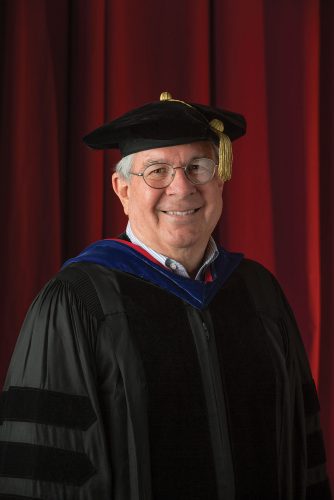
Don Jackson
Donald W. Jackson
Herman Brown Professor
political science
Years at TCU: 1975-2010
Named Piper Professor: 2003
Research areas: Transnational and international law, universal jurisdiction and international human rights enforcement
A career highlight: Worked at the U.S. Supreme Court for then-Chief Justice Warren Burger
How has a student (or group of students) impressed or honored you during your tenure?
Doran: Over the years I have received literally hundreds of thank you letters, gifts, plaques, and other items from former students — after the grades were in! Each of these is very special to me and I am deeply grateful that students enjoyed my teaching and classes. On broader scale the national, statewide, and local awards I have received for my teaching stem primarily from student recommendations to the university. So, I consider each of these awards to be an honor that comes largely from students I have taught. Of course, faculty colleagues and administrators have also played a very important role in my career at TCU.
Enos: I have had over 40 years of undergraduate and graduate students and the greatest honor is when they contact me and tell me how something I did or said helped to inspire them to attain their goals and to realize their dreams.
Frye: I have been fortunate to receive come recognition for my teaching during my 44 years at TCU. Three of these honors from students in particular stand out. First, I was voted by Honors students for the TCU Honors Professor of the Year in 1981. Second, I received the “Honors Program MVP, Bob Frye, 1966-2002” in December 2002. It was presented to me at the Spring 2003 Honors Banquet on the occasion of my retiring from full-time teaching. Third, in December 2013, Mark Wassenich of the Board of Visitors of the John V. Roach Honors College informed me that I had been chosen by the board to be honored with a scholarship. I agreed, with the understanding that the award would include my wife’s name, Alice Frye.
Jackson: I had been at TCU only a very few years when I was recognized by my students as the Honors Professor of the year. I was surprised and honored by their respect
Weinburgh: The Ph.D. students have put my name up for the Mentoring Award, given by the Association for Science Teacher Education. This is humbling.
Carter: I’m impressed by many of my students who do incredible things. They’ve presented their own original research at professional conferences and sometimes had it published. I’ve had students have positive, life-changing experiences via study abroad or in Washington, DC. I’ve seen our students go on to participate in Teach for America, the Peace Corps, or work for NGOs that help improve the greater good. One of my former students (Joel Sandhu) lives in Berlin where he’s a researcher for the Global Public Policy Institute. Another (Dan Kaszeta) lives in London where, after serving in the White House Military Office and the U.S. Secret Service, he’s now a security consultant, a book author, and the son-in-law of a member of Britain’s House of Lords. At least four of my former students (Dan Kaszeta, Mark Kitchens, Barrett Benge Karr, and Kenny Thompson) have gone on to work in the Executive Office of the President. Many former students have entered public service in various parts of the federal government – in Congress, the Cabinet departments, the military, and in the intelligence community. One of my former students (Bobby Chesney) holds an endowed chair as a faculty member at the University of Texas School of Law. Finally, some of my former students have gone on to start their own businesses.”
“I have derived great pleasure from being part of the TCU family and the opportunities it has provided me to grow as a teacher and a scholar.”
Cecilia Silva

Your comments are welcome
5 Comments
Best teachers produce students that excel way above them in their own field.
What a surprise to see Dr. Frye quoting me! I’m quite honored that he recalls that conversation. The sentiment certainly rings true to me, but looking back on my days at TCU (I graduated in 1983), the word I most associate with Dr. Frye in my memories would be “integrity.” My classmates and I were indeed blessed to be taught and mentored by the very best TCU had to offer. Rock on, Dr. Frye!
I thoroughly enjoyed the reading and the experience. Thanks to Rick and all the folks at TCU Magazine for making this possible. Richard Enos
Love this article. Love the fog machine. Thanks to the Minnie Stevens Piper Foundation for honoring such important work; thanks to all those who put this article together; and many, many thanks to these wonderful professors for showing us how to teach content AND students.
Related reading:
Features
Our Marching Band, the Pride of TCU
In its 111th year, the band still practices hard, relies on teamwork and performs with passion.
Features
Kelubia Mabatah’s Comeback
Former TCU tennis player forges on after a traumatic brain injury.